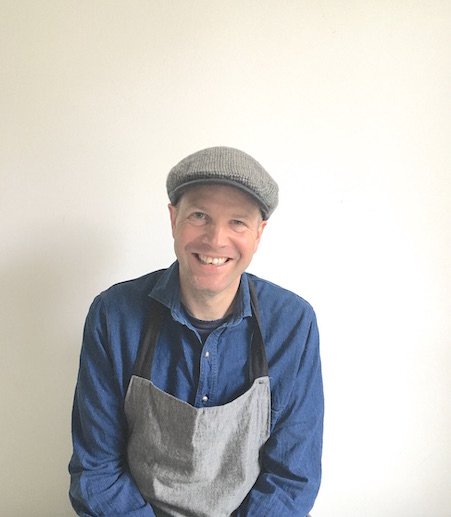2022
Exploring Turkish Tea Production and Consumption - Dr. Saziye Ilgaz
Finding a Unique Selling Point in Tea - Jon Cooper
Maximising Opportunities with Tea in your Beverage Business - Marco
The Portuguese Love Affair with Camellias and Tea - Nina Gruntkowski
African Speciality Teas : Addressing Quality Assessment & Route to Market - Joyce Maina
Spreading the Production of Specialty Tea in Kenya - Boaz Katah
The Glory of Darjeeling - Rajah Bannerjee
Tea’s Chaotic, Fragmented Markets are a Matter of Taste - Dan Bolton
The many Flavours and Functions of the Honeybush Plant and the Challenges of its Sustainable Cultivation - Daniel Fourie
Japanese Export Trends in the European Market - Anna Poian
Back to the Future: Past and the Future of Speciality Tea - Tim d’Offay
Exploring Turkish Tea Production and Consumption
This webinar is presented by Dr. Saziye Ilgaz, an independent tea specialist with over 36 years of experience in the tea industry.
Turkey is the fifth largest tea producer country in the world with its 287,000 tonnes of production. In 2021, a total of 1,456,000 tons of fresh tea leaves were purchased and processed by ÇAYKUR and the private sector. Total production capacity of Turkish tea industry is about 16,600 tonnes/day. 7,700 tonnes/day of this belongs to CAYKUR while rest of the production capacity is conducted by private sector.
Unlike other tea producer countries all of the tea gardens belong to the smallholders in Turkey. Tea cultivation is carried out on an area of 78.7 thousand hectares by 201,000 smallholders in the eastern Black Sea Region of Turkey.No pesticides or herbicides have been used in tea farming since 1924, when tea farming began. Turkey is the country with the highest tea consumption per capita in the world.
Tea has an important role in Turkish social life. Offering tea in Turkey is a sign of friendship and hospitality.
Dr. Saziye Ilgaz
Finding a Unique Selling Point in Tea
Jon Cooper
Jon Cooper explores some of the issues faced by independent tea companies trying to stand out in a crowded market. He discusses why this can be difficult and in turn how this can cause a struggle to be financially successful. He looks at some of the external and internal factors related to the tea industry and what we can all be doing to help grow the market as a whole so we all benefit. He discusses some of the bad behaviour within the tea industry and why we should set up a code of conduct around sourcing and marketing of our products. He talks about certain legal requirements related to tea labelling and sourcing and why by being honest and transparent about our products can increase the size of the market and improve sales overall for everyone. He shares some of his experiences of how to stand out and have a USP within the niche of true speciality tea.
Maximising opportunities with tea in your Beverage Business
MARCO, Pioneer Member and Sponsor of ESTA, have produced the following enlightening webinar entitled “Maximising opportunities with tea in your Beverage Business" featuring thoughts and insight from two other ESTA members, Oscar Woolley of Suki Tea and Emilie Holmes of Good & Proper Tea.
The Portuguese Love Affair with Camellias and Tea by Nina Gruntkowski
Through the sea route Portugal has a long connection to Asia and not surprisingly it was Portuguese seafarers who brought the first Camellia plants and also tea as a commodity to Europe. For many decades tea production in Europe was exclusively happening in São Miguel/Azores, a Portuguese Island in the middle of the Atlantic Ocean. Inspired by the beautiful Camellia trees along the northern Portuguese coast, known as the “land of the Camellias” in 2011 we started realising our dream of planting an organic tea plantation with Camellia sinensis for green tea production. Since 2019 Chá Camélia is producing organic, artisanal green tea and is introducing Europeans to speciality tea and the Asian tea culture.
Nina Gruntkowski
Nina Gruntkowski, journalist and tea enthusiast, was working on a radio programme on tea, when over 10 years ago she discovered that the tea plant (Camellia sinensis) is a specie of Camelia, which grow very well in the North of Portugal (also known as “the land of the camellia trees”). Together with her husband and wine producer, Dirk Niepoort, she started the Camélia project building up a tea plantation in the North of Portugal and distributing teas from their Japanese partners. Since 2019 she is dedicated to the production of organic, artisanal green tea. At the tea plantation, close to Vila do Conde, she also conducts tea tastings and workshops.
More information: www.chacamelia.com
African Speciality Teas : Addressing Quality Assessment & Route to Market by Joyce Maina
International Trade Centre (ITC) is working with speciality producers from East Africa in a programme called Market Access Upgrade Programme (MARKUP).
The objective is to explore the feasibility of establishing a regular market connections service promoting direct trade with global buyers of specialty teas, and to meet the need of tea producers to diversify their product and marketing options.
This is in response to global consumer demand and growth in premium categories, and trends for direct trade and e-commerce, emulating a growing and successful trend in the coffee industry.
Joyce discusses the concept, and what has been achieved so far, including their bespoke quality categorisation system which will help in this regard.
Joyce Maina
Spreading the Production of Specialty Tea in Kenya
Boaz Katah
Boaz Katah, Founder of Tumoi Teas and Chairman for Purple and Specialty tea association of Kenya talkS about how the association is spearheading the production of specialty tea in Kenya. He shareS on what the transition to specialty tea journey has been and what it takes to produce speciality teas in Africa, and the amazing quality that is produced there, referring to the concept of the six P's of specialty tea.
The glory of Darjeeling
Swaraj Kumar (Rajah) Banerjee pioneered Fairtrade and holistic sustainable practices to global tea. He is an entrepreneur and an environmental activist. Currently organizing small growers of the Indian sub-continent under the Rimpocha umbrella, he creates self-respecting Grass Root Entrepreneurs (GREs) to achieve SDG 2030.
Rajah Banerjee
Tea’s Chaotic, Fragmented Markets are a Matter of Taste
By Dan Bolton
Dan Bolton
All the world’s fine teas are local. Billion-dollar brands prosper by marketing blends globally, but suppliers that concentrate on producing local teas earn the highest profits. Globally the tea industry thrives as a highly fragmented collection of regional brands each with packaging, merchandising, and a taste so distinctive that consumers remain loyal for decades. One of the key differentiators in markets is a preference for broken and whole leaf traditionally (orthodox) processed. Generations of Russians, Ukrainians, and Eastern European tea drinkers, as well as those in Turkey, Iran, Iraq, Saudi Arabia, Libya, and Jordan enjoy orthodox. Demand for generations was unimpeded by geopolitics except during World War II. In the past 10 years sanctions have dampened and more recently supressed consumer preferences in tea leading to a global realignment of orthodox producers in which India may unseat Sri Lanka as the world’s top orthodox black tea producer.
The many flavours and functions of the honeybush plant and the challenges of its sustainable cultivation
Daniel Fourie
Webinar presented by Daniel Fourie of the Langkloof Honeybush Company.
Honeybush - Cyclopia sp is an indigenous herb in South Africa and has a similar but unique profile to its better known cousin Rooibos. Its commercial rise is a relatively recent phenomenon, but honeybush is hardly a new discovery. For centuries, the Khoi and San, southern Africa’s earliest people, used the endemic plant medicinally. As a tea, it has been brewed locally for at least three hundred years. We will explore this unique herb that offers such a diverse flavour pallet, amazing health benefits and the challenges around its sustainable and regenerative cultivation.
Japanese Export Trends in the European Market
This webinar is presented by Anna Poian from Global Japanese Tea Association. Anna has been involved in Japanese tea since 2016. After spending some months working at a tea farm in Kyoto prefecture, she started introducing Japanese tea throughout Europe. She has been actively participating at tea festivals and holding workshops in different countries.
Together with Yasuharu Matsumoto and Simona Suzuki, Anna is co-founder of the Global Japanese Tea Association. Nowadays she teaches some of the online courses of the association and is in charge of its social media.
Back to the Future: Tim d’Offay from Postcard Teas in London discussed the past and the future of speciality tea.
Tim started importing teas in the 1990s into the UK from places he had previously visited. In 2005 he opened Postcard Teas, and was the first to attribute the producers’ name and location on all of the teas that he sold. He was probably the first early adopter of speciality tea in Europe.












